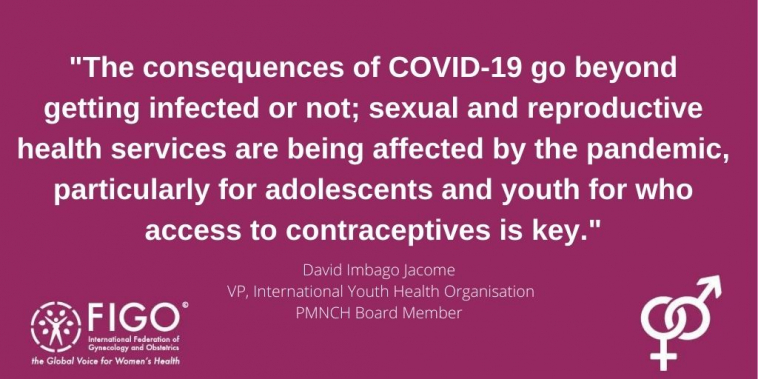Youth and Family Planning during COVID-19

Statistically COVID-19 has low mortality rates for youths and adolescents. What the Coronavirus is instead putting young girls at risk of, is a lack of Family Planning services, which could increase mortality rates as a result. The World Health Organisation states that, for girls aged 15-19, complications from pregnancy and childbirth are the leading cause of death globally.
Disruption of Access and Supply Chain
Stock-outs of many contraceptive methods are predicted to occur within the next 6 months (at the time of writing) in more than a dozen Low-Middle Income Countries (LMIC). Without effective mitigation strategies implemented, it is estimated that between 13 million and 51 million women will be unable to use modern contraceptive methods, who would have otherwise been able to access and use them.
The unmet need for family planning in LMIC is only expected to increase as the effects of the pandemic are felt more widely. Production of IUD’s in India (who produces a significant number of the global IUDs) was forced to come to a standstill in March, as well as the Indian government prohibiting the export of products with progesterone; a key component of many contraceptive methods.
"The consequences of COVID-19 go beyond getting infected or not; sexual and reproductive health services are being affected by the pandemic, particularly for adolescents and youth for who access to contraceptives is key, if we want them to thrive. Now, more than ever, we need to approach sexual and reproductive health from a well-being perspective."
David Imbago Jacome, VP, International Youth Health Organisation, PMNCH Board Member
The Effect on Youth
It is estimated that around 23 million adolescent girls in LMIC have an unmet need for contraception and family planning. One study found that the demand for contraception among adolescents ranged from 22% in Azerbaijan to a huge 98% in Peru. If young women are already struggling to get access to contraception, the coronavirus pandemic only poses to exacerbate these issues.
However, the effect on young people may turn out to be beneficial in the long run; many healthcare providers have been forced into thinking about innovative ways they can provide a high-quality service, whilst minimising the risk to both patients and professionals. Both telephone and video platforms have been found to be well-suited to contraceptive care.
This means that many girls who may have been unable to attend a consultation on family planning, due to any number of reasons such as money issues or inability to access transport, will have the opportunity to get adequate family planning counselling and services. So, although the pandemic has been devastating for the entire globe, there may well be some positives that occur.
Chair of our Committee on Contraception and Family Planning, Jill Sheffield, comments:
With nearly half of the world’s population under the age of 25, the sexual & reproductive health of young people needs to be a priority globally. The FIGO Committee on Contraception and Family Planning has the sexual and reproductive health needs of young people as a priority in our work. We know that information, services and supplies are too often denied to them. This must change and we hope that the Member Societies of FIGO can lead the way to opening access to life-saving information and services for young people everywhere.”
Ensuring that youth across the globe have access to safe and effective methods of family planning is key to achieving the 2030 Agenda for Sustainable Development, with targets included in SDGs 3, 5 and 10. We must all come together to ensure that the COVID-19 pandemic does not prevent adolescents and young people from accessing the contraception services which they so crucially need